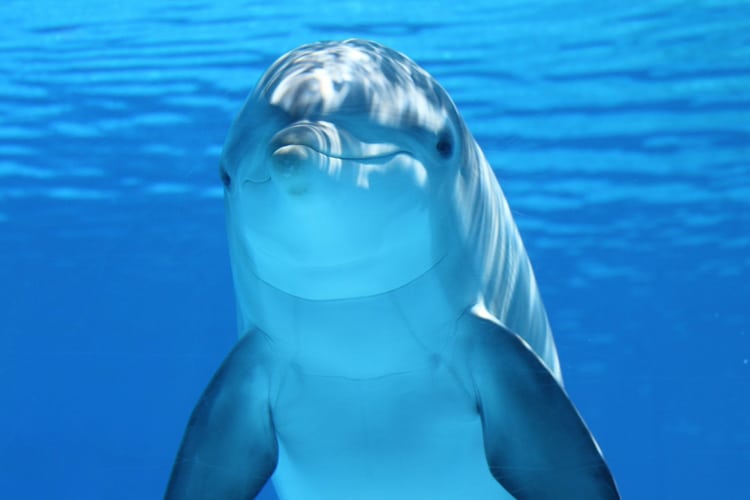|
Sea STAR has partnered with Dolphinaris Arizona to launch the first noncoastal dolphin assisted therapy program in North America for children and adults with special needs. Offered exclusively at the Dolphinaris facility in Scottsdale, the program provides individuals with developmental and physical disabilities, emotional challenges, and critical or chronic illness with the opportunity to enjoy the therapy experience of a lifetime by focusing on typical therapy goals over 10 consecutive days or 10 recurring weeks with dolphins in a non-typical aquatic setting. Each client’s goals and objectives are coordinated in advance with the client’s family, caregivers, and teachers with the help of Sea STAR’s multidisciplinary team of licensed professionals in special education, speech and language pathology, occupational therapy, physical therapy, and/or applied behavior therapy. Single-day recreation experiences are also available for clients to exchange fin-to-handshakes, get dolphin kisses, as well as participate in and view other dolphin behaviors with a licensed specialist. Dolphin assisted therapy is designed to unlock, uncover, and rediscover what a person with special needs can accomplish when given a unique opportunity to learn. An experience in the water with a bottlenose dolphin has the ability to connect right-brain and left-brain learning, as well as activate senses that are needed to improve learning, mobility, and/or speech process. For those who have not responded well to traditional therapies or are tired of routine therapy programs, this fun and interactive experience provides unconditional support from the dolphins, a very rare and special motivator, a sense of freedom by being in the water, the chance to increase muscle tone and flexibility, and bring joy to the life of a loved one. “The idea behind dolphin assisted therapy is simple,” says Sea STAR’s co-founder and lead specialist Krista Roland. “Increased attention, leads to increased development, and I can’t think of anything more exciting than having the opportunity to learn with dolphins within our aquatic environment!” Individuals of all ages and abilities are welcome to apply for a therapy experience with Sea STAR, including people with Down syndrome, cerebral palsy, autism, traumatic brain injury and other challenges. Family members and caretakers are encouraged to participate alongside the specialists and dolphin trainers and have access to Dolphinaris’ temperature controlled fresh-water pool, private cabanas, hot tubs, and water-side restaurant, following each of Sea STAR’s sessions. All of these unique elements, combined with unconditional love from the dolphins, makes the experience especially powerful. “We are honored to host such an important program,” says Christian Schaeffer de Leon, Dolphinaris Arizona general manager. “It is gratifying to see how our dolphins and trainers are making a significant impact on families and these very special children.” Dolphin assisted therapy has been practiced for more than 35 years around the world. Until now, it’s been limited to remote or seasonally restricted areas such as the Florida Keys and Mexico. The state-of-the-art Dolphinaris facility is open year-round and just minutes from Phoenix Sky Harbor Airport and Mayo Clinic. “It’s our desire for Sea STAR to provide siblings and families with a unique bonding experience, while delivering a unique opportunity for the special needs community. While space is limited, we have the opportunity to grow, thanks to the generous support of the Dolphinaris team,” says Sea STAR co-founder and president Brian Roland. “And, as a non-profit organization, it’s our goal to make this program affordable for families everywhere through unique fundraising options, strategic and corporate partnerships, grants, and other unique funding opportunities including the state of Arizona’s Empowerment Scholarship Accounts.” Sea STAR’s therapy experiences are available by application only at www.SeaStarAZ.com at the introductory price of $295 per person per day for a limited time, which is significantly less than the internationally accepted market rate of $455 per person per day. |




